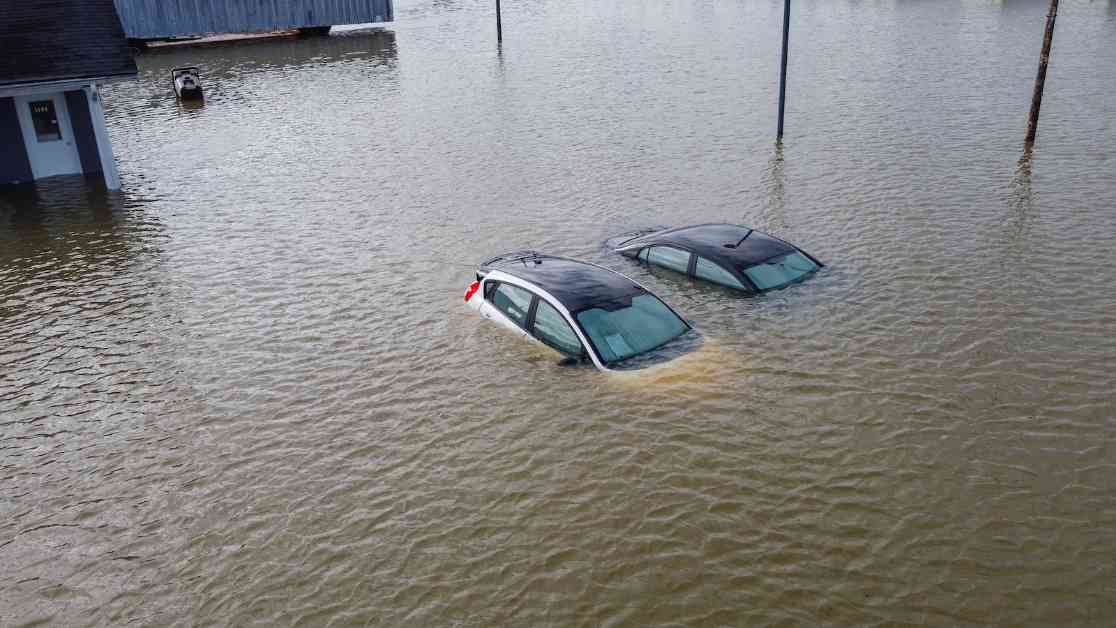As Climate Disasters Strain State Budgets, Lawmakers Get Creative
In a world where climate disasters are becoming the new norm, some lawmakers are stepping up and demanding accountability from fossil fuel companies. They want these companies to take responsibility for the damages caused by their greenhouse gas emissions. It’s a battle of David versus Goliath, with states like Vermont and New York leading the charge.
Vermont made history last May by passing the first-ever climate Superfund law. Taking a page out of the 1980 federal Superfund law’s playbook, this state-level version forces major oil and gas companies to foot the bill for climate-related disasters and adaptation costs. The law came into play after Vermont suffered from heavy flooding in 2023. Following suit, New York became the second state to pass a similar law in December.
The Momentum Builds, But Opposition Looms Large
Eleven states, from California to Maine, have thrown their hats into the ring by introducing their own climate Superfund bills this year. The push for accountability is gaining momentum, despite facing legal challenges from fossil fuel companies, Republican-led states, and even the Trump administration. Lawmakers and climate advocates are bracing themselves for a tough fight, knowing that billions of dollars are on the line for the oil and gas industry. But the need to find ways to cover the hefty costs of safeguarding and repairing infrastructure in the face of escalating floods, wildfires, and other disasters is paramount.
Maryland Delegate Adrian Boafo, representing Prince George’s County, has been vocal about the importance of standing up to the opposition. He co-sponsored a climate Superfund bill that cleared the state legislature in March, emphasizing the need to protect citizens in the absence of federal support. The road ahead is bumpy, but lawmakers like Boafo are determined to forge ahead in the fight against climate devastation.
Climate Superfund: A Growing Trend
While the concept of a climate Superfund isn’t new, states have only recently started taking these laws seriously. In Maryland, the lack of federal action on climate change and the mounting strain on government budgets have propelled interest in such legislation. Cities and counties are grappling with unexpected expenses due to damage caused by extreme weather events, putting a strain on public infrastructure and disaster relief efforts. Maryland alone has shouldered billions in disaster costs since 1980, with no significant contribution from major fossil fuel companies.
As the landscape shifts towards climate accountability, more states are turning to attribution science for guidance. Advanced climate models now allow researchers to pinpoint the link between extreme weather events and greenhouse gas emissions from specific companies. This data-driven approach helps governments determine which oil and gas giants should bear the brunt of climate damages and to what extent.
Vermont and New York Lead the Way
Vermont’s law sets the stage for holding major oil and gas companies accountable by calculating the costs of climate harms caused by their emissions between 1995 and 2024. The state then assigns each company a share of these costs, invoices them accordingly, and allocates the funds towards climate infrastructure and resilience projects. On the other hand, New York’s law sets a fixed funding target, requiring select fossil fuel companies to contribute $75 billion over 25 years. The payment amount is tied to each company’s global greenhouse gas emissions between 2000 and 2024. Both laws apply to companies emitting over 1 billion metric tons of greenhouse gases during the specified periods.
Maryland’s legislation, though not yet signed by the governor, takes a different approach by mandating a study on the cumulative costs of climate change in the state. This step aims to gauge the financial implications of implementing a climate Superfund program, with lawmakers expected to propose new legislation by December 2026. While the bill’s original intent was diluted during the legislative process, it signifies a step in the right direction towards climate accountability in Maryland.














